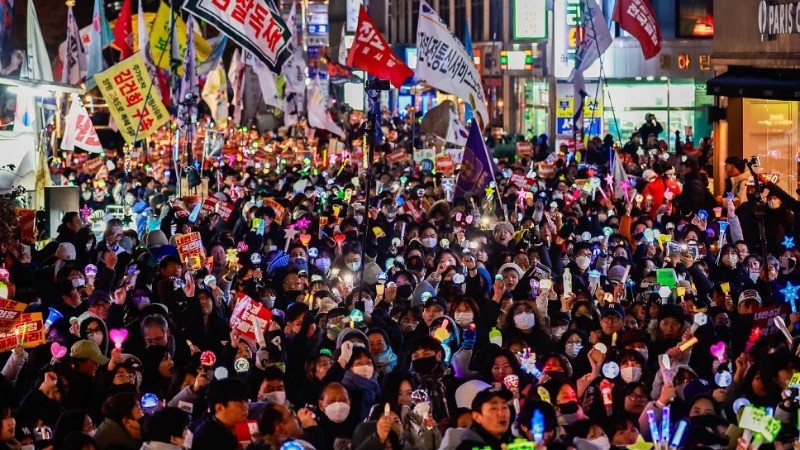
South Korea is embroiled in political unrest following President Yoon Suk Yeol's failed attempt to impose martial law. The move, described by North Korea as a "military coup" and evidence of a "fascist dictatorship," has sparked widespread criticism and protests.
South Korean police carried out a raid on the office of President Yoon Suk Yeol in connection with his involvement in last week's declaration of martial law. The decision has thrown the nation, Asia's fourth-largest economy, into turmoil and raised concerns among international allies.
A special investigation team revealed that the operation extended to multiple government entities. "The special investigation unit has executed raids on the presidential office, the National Police Agency, the Seoul Metropolitan Police Agency, and the National Assembly Security Service," the team stated in a communication shared with Agence France-Presse.
President Yoon's announcement last week accused North Korea sympathizers of attempting to destabilize his government. The decision has left his political future in jeopardy, as even members of his ruling People Power Party have refrained from supporting his impeachment.
In a strongly-worded article published in North Korea's state newspaper Rodong Sinmun, Yoon's declaration was labeled "insane" and compared to the actions of past military dictators. The article stated that Yoon "brazenly brandished guns at his own people," highlighting the fragility of South Korea's political stability.
Photos accompanying the article depicted protests in Seoul, featuring young South Koreans holding banners and K-pop light sticks, symbolizing a mix of traditional activism and modern cultural expressions.
Yoon's attempt to enforce martial law triggered immediate political chaos. Though he remains in office, he has been banned from leaving the country and faces an investigation for treason. Questions linger over his authority, as concerns grow about potential provocations from North Korea and the President's control over the military.
Over the weekend, an impeachment attempt failed after Yoon's party boycotted the vote. However, the opposition Democratic Party, which holds a parliamentary majority, has pledged to continue efforts to remove him from office. A second vote is expected on Saturday, requiring at least eight members of Yoon's party to cross the aisle for a two-thirds majority in the 300-seat parliament.
South Korea last experienced martial law in 1979 following the assassination of a military ruler, leading to a period of repressive governance. Today, the country is a stable democracy, making Yoon's justification for martial law—to combat "dark forces" and an "opposition-controlled National Assembly attempting to paralyze the government"—a stark contrast to its democratic norms.
Hours after his announcement, Yoon was forced to retract his declaration amidst a public outcry. Protesters and lawmakers gathered at the National Assembly, where legislators ultimately overturned the martial law order.
Yoon's presidency, already marked by challenges since his narrow victory in 2022, now faces its most critical test as his grip on power weakens under mounting pressure.